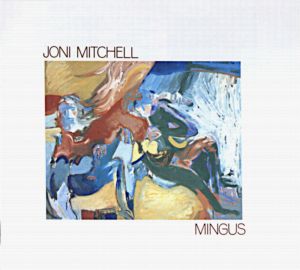
- Format: MP3

In the months prior to the passing of legendary jazz bassist Charles Mingus, Joni Mitchell had been personally summoned by the bop pioneer to collaborate on a musical version of T.S. Eliot's Four Quartets. The project would entail Mitchell to condense the text for Mingus to score instrumentally. He planned on utilizing a full orchestra, as well as the more traditional guitar and bass. They would accompany Mitchell's vocals and the narration of selected portions of the text. After a few weeks of consideration, Mitchell's reaction was that "[she]'d rather condense the bible." Mingus then bestowed Mitchell with six melodies — "Joni I" through "Joni VI" — penned specifically for her. Mitchell spent a few weeks with Mingus — who was totally immobilized from amyotropic lateral sclerosis (aka, Lou Gehrig's Disease) — during the spring of 1978. Their partnership advanced the half-dozen tunes. More importantly, it shook Mitchell from a three-month long writer's block/drought — yielding two of her best late-'70s compositions: "God Must Be a Boogie Man" and the revisitation and completion of a track she'd been wood-shedding, now titled "The Wolf That Lives in Lindsey." Incidentally, the former piece was inspired by the opening chapters of Mingus' autobiography, Beneath the Underdog. Initial recordings during Mitchell's stay with Mingus in New York City produced several interesting experimental sessions with the likes of Stanley Clarke (bass), Jan Hammer (keyboards), John McLaughlin (guitar), Gerry Mulligan (baritone sax), and Tony Williams (drums). A few of these recordings — while rumored to have been lost, destroyed, or made otherwise unavailable — were leaked into the trading community in the late '90s. Arguably, Mitchell could not have chosen any finer musicians than the sextet she ultimately incorporated into this work. The luminaries include Herbie Hancock (electric piano), Wayne Shorter (soprano sax), Jaco Pastorious (bass/horn arrangements), Peter Erskine (drums), Don Alias (congas), and Emil Richards (percussion). Sprinkled amongst these soulfully jazzy pieces are five "raps," or aural snapshots of the time Mitchell and Mingus spent together. Sadly, Charles Mingus passed before he was able to listen to this timeless and ageless paean to his remarkable contributions to bop and free jazz.